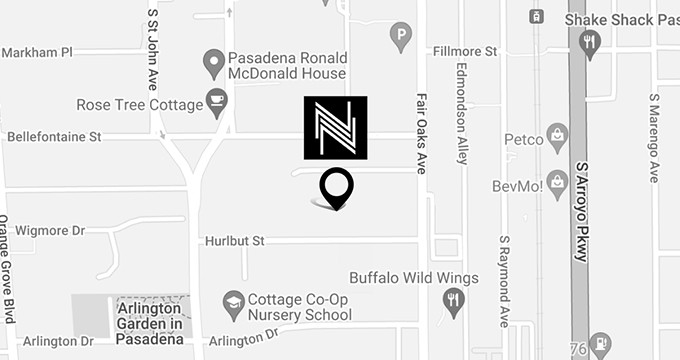
Losing weight changes your body—but not always in the ways you expect. Many patients are surprised to find that even after reaching their goals, they’re left with loose skin, deflated contours, or discomfort that diet and exercise can’t fix. What’s often overlooked in the conversation about weight loss is how plastic surgery can help complete the transformation—not to chase perfection, but to restore confidence, comfort, and harmony with your new body.
The Body After Weight Loss: Real Challenges That Aren’t Talked About
After significant weight loss, the body often faces challenges beyond just shedding pounds. Loose, excess skin can cause physical discomfort like chafing and irritation, limiting movement and exercise options. Many people also experience uneven fat distribution, where some areas remain stubbornly full despite overall weight loss. This can create frustration and body image concerns that diet and fitness alone can’t resolve. Additionally, the loss of natural volume in areas like the breasts or face can leave a deflated, aged appearance. These issues are rarely discussed openly but are critical to understand when considering how plastic surgery can support your weight loss journey by addressing these unique, lingering concerns.
Plastic Surgery as a Continuation of Your Health Journey
Plastic surgery after weight loss isn’t just about appearance—it’s a natural extension of the health and wellness journey. Many people underestimate how body contouring and skin tightening procedures can restore physical comfort, improve posture, and even enhance mobility. Beyond aesthetics, these surgeries can help repair the damage caused by rapid weight changes, such as stretched tissue and weakened muscles. Approaching plastic surgery as part of a holistic health plan encourages patients to maintain their results with a balanced lifestyle. This mindset shifts the focus from “fixing” to “completing” the transformation, supporting long-term wellbeing and confidence in ways few discuss openly in the weight loss community.
Common Procedures After Weight Loss: Matching Treatment to Need
After significant weight loss, the body often shows signs of excess skin and changes in volume that no amount of diet or exercise can fully address. Choosing the right procedure depends on the specific areas affected and individual goals. Here are some commonly performed surgeries tailored to various needs:
- Tummy Tuck (Abdominoplasty): Ideal for those with loose skin and weakened abdominal muscles after weight loss, this procedure tightens the core and removes excess skin, improving both appearance and posture.
- Body Lift Surgery: This comprehensive surgery targets multiple areas—abdomen, thighs, buttocks, and sometimes arms—addressing sagging skin that can’t be corrected by localized treatments alone.
- Liposuction After Weight Loss: While liposuction isn’t a weight loss tool, it’s valuable for contouring stubborn fat pockets that persist after major weight loss, offering a more sculpted appearance.
- Breast Lift and Augmentation: Dramatic weight loss often results in volume loss and sagging breasts; combining a lift with augmentation can restore youthful shape and fullness.
- Arm Lift (Brachioplasty): Excess skin and fat under the arms are common concerns, and this procedure tightens and smooths the upper arm contour.
- Thigh Lift: For sagging skin on the inner or outer thighs, this surgery reshapes and tightens, improving comfort and aesthetics.
- Facelift Post Weight Loss: Weight loss can cause facial volume loss and skin laxity; a facelift or volume restoration techniques can address these subtle changes.
Matching procedure choice to individual anatomy and lifestyle ensures the best outcomes in restoring confidence after weight loss.
Timing Your Procedures: When Is the Right Time to Pursue Surgery?
Choosing the right time for plastic surgery after weight loss involves more than just hitting a target number on the scale. Surgeons often emphasize the importance of waiting until your weight has been stable for several months to ensure lasting results and minimize complications. However, timing also depends on your overall health, skin quality, and emotional readiness. Some patients may benefit from staged procedures, addressing specific areas gradually rather than all at once, which can support better healing and more precise contouring. Additionally, new weight loss medications and lifestyle changes can affect skin elasticity and fat distribution, making timing even more nuanced. Collaborating closely with your surgeon allows for a personalized plan that respects both your physical condition and your long-term wellness goals.
Setting Realistic Expectations: A Surgeon’s View on Final Outcomes
Plastic surgery after weight loss can dramatically improve your appearance, but understanding the limits of what surgery can achieve is crucial. Surgeons emphasize that while procedures remove excess skin and reshape the body, they don’t erase all signs of weight loss or aging. Scarring, changes in skin texture, and the natural effects of gravity remain factors. Results also depend on your body’s healing ability, which varies individually. Surgeons encourage patients to focus on improved contours and function rather than perfection. Embracing the transformation as a step in a lifelong wellness journey helps align expectations with reality, fostering satisfaction and confidence in the final outcome.
Empowering Confidence: The Emotional Benefits of the Final Step
The final phase of your weight loss journey—plastic surgery—is often overlooked for its profound emotional impact. Beyond physical transformation, it offers a renewed sense of self and closure after months or years of hard work. Patients frequently describe feeling empowered, not just by their appearance but by reclaiming control over their bodies. This emotional boost can improve mental health, increase social confidence, and inspire healthier lifestyle choices. It’s a deeply personal milestone that helps many fully embrace their new identity. Recognizing these psychological benefits is essential, as they play a crucial role in long-term satisfaction and overall well-being after surgery.
Conclusion
Plastic surgery can be a powerful and empowering step in your weight loss journey, helping you address challenges like excess skin and contour irregularities that diet and exercise alone can’t fix. By understanding how surgery complements your health efforts and setting realistic expectations, you can achieve a balanced, natural-looking transformation that supports both your confidence and well-being. If you’re ready to explore how plastic surgery can enhance your weight loss results and boost your self-image, visit us or call (626) 696-8181 to schedule a personalized consultation with Dr. Nima and his expert team.


